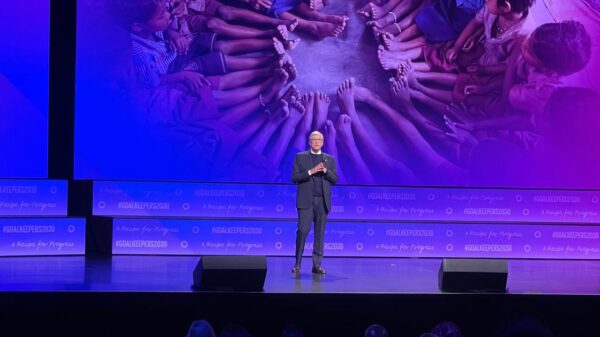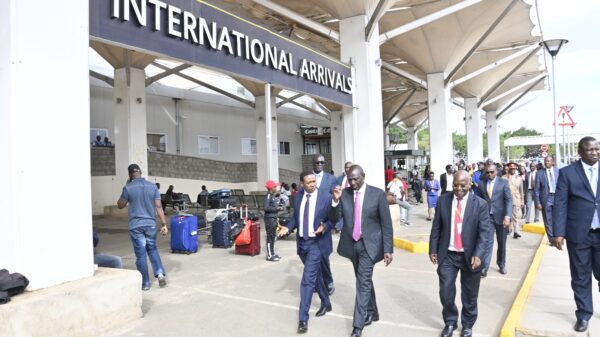
Shaima Swileh, a native of Yemen, was granted a US visa to visit her dying two-year-old son Abdullah Hassan, a US citizen like his father Ali — both of whom are pictured here at UCSF Benioff Children’s Hospital in Oakland on December 16, 2018 © Council on American-Islamic Relations/AFP
San Francisco, United States, Dec 20 – A Yemeni mother who was granted a waiver from President Donald Trump’s ban on travel from several Muslim majority countries has arrived in the US to say goodbye to her dying toddler son.
Shaima Swileh wore dark glasses as she walked into the arrivals terminal at San Francisco airport Wednesday night. A group of supporters carrying placards greeted her.
Her two-year-old boy Abdullah Hassan, a US citizen like his father, suffers from a rare genetic brain condition and is on life support in a hospital in Oakland, California.
But Swileh had been unable to join him due to Trump’s order barring visitors from six countries including Yemen.
After a tearful televised plea from the boy’s father prompted public outrage, the US embassy in Cairo issued a visa for Swileh, who has been living temporarily in Egypt.
After the waiver was granted, her husband, Ali Hassan, expressed relief and said, “This will allow us to mourn with dignity.”
Hassan said he had been ready to take his son off life support last week after doctors said the case was terminal, with his wife only receiving automated replies when inquiring with US authorities on her visa application.

Abdullah Hassan suffers from a rare genetic brain condition and is on life support © Council on American-Islamic Relations/AFP
The Council on American-Islamic Relations, which is assisting the family, launched a campaign that it said prompted 15,000 emails to elected officials as well as thousands of tweets.
Abdullah’s grandfather earlier told the San Francisco Chronicle that Swileh was crying every day as she wanted to see her son “one last time.”
“To hold him for at least a minute. She’s not going to see him forever,” he said.
Exceptions to Trump’s ban are exceedingly rare. The American Civil Liberties Union, which opposes Trump’s order, said that only two percent of applicants have been granted waivers.
Trump vowed during the 2016 campaign to ban all Muslims from entering the United States, despite constitutional protections of freedom of religion, after a mass shooting in California by a couple of Pakistani descent.
In an executive order that triggered chaos before court challenges and revisions, Trump blocked new visas to nearly all citizens of five Muslim-majority countries — Iran, Libya, Somalia, Syria and Yemen — as well as North Korea and some officials from Venezuela.
A divided Supreme Court in June upheld the ban, which it said was within the president’s powers.
































